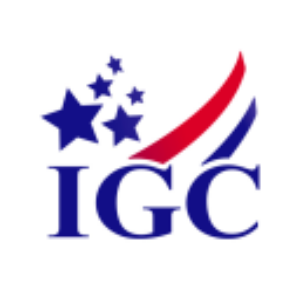IGC Pharma Highlights Alzheimer's Pipeline with Encouraging Preclinical Data on IGC-M3 and Advancing Phase 2 Cannabinoid-Based IGC-AD1
Rhea-AI Summary
IGC Pharma (NYSE:IGC) announced promising preclinical results for two Alzheimer's disease treatments. Their lead candidate IGC-M3, a novel small molecule, demonstrated significant activity against multiple Alzheimer's pathology drivers, including over 90% prevention of beta-amyloid fibril formation and superior antioxidant performance compared to vitamin C.
The company is pursuing a dual-strategy approach with IGC-AD1, a cannabinoid-based therapy currently in Phase 2 clinical trials for Alzheimer's-related agitation, and IGC-M3, targeting multiple disease mechanisms in preclinical development. IGC-AD1 utilizes THC to address agitation affecting up to 76% of Alzheimer's patients, while IGC-M3 shows promise in disease modification through multiple pathways including amyloid reduction, metal ion regulation, and inflammation control.
Positive
- None.
Negative
- IGC-M3 findings are only from in vitro studies, requiring further in vivo validation
- Early-stage nature of IGC-M3 means long development timeline ahead
- Competitive Alzheimer's treatment landscape with multiple players
News Market Reaction 6 Alerts
On the day this news was published, IGC declined 2.18%, reflecting a moderate negative market reaction. Our momentum scanner triggered 6 alerts that day, indicating moderate trading interest and price volatility. This price movement removed approximately $660K from the company's valuation, bringing the market cap to $30M at that time.
Data tracked by StockTitan Argus on the day of publication.
Positions IGC at the intersection of biotech innovation and cannabinoid science in one of the largest unmet medical needs in the world
Alzheimer's affects over 50 million people globally, with more than 400 million at risk from underlying disease pathology
POTOMAC, MARYLAND / ACCESS Newswire / August 12, 2025 / IGC Pharma, Inc. ("IGC" or the "Company") (NYSE American:IGC) today announced promising preclinical results for IGC-M3, a novel small molecule designed to address multiple biological drivers of Alzheimer's disease. IGC-M3 demonstrated activity in laboratory models against beta-amyloid aggregation, oxidative stress, mitochondrial dysfunction, and neuroinflammation, four key contributors to Alzheimer's pathology.
The findings underscore IGC Pharma's dual-pronged strategy in Alzheimer's disease, which includes:
IGC-AD1 - A proprietary, cannabinoid-based formulation currently in Phase 2 clinical trials for agitation in Alzheimer's disease, with potential disease-modifying effects under investigation.
IGC-M3 - A multifunctional, next-generation small molecule with the potential to impact multiple disease mechanisms, currently in preclinical development.
"Few companies in the Alzheimer's space are advancing both a late-stage cannabinoid-based therapy and an early-stage small molecule with multi-pathway potential," said Ram Mukunda, CEO of IGC Pharma. "IGC-AD1 offers a near-term opportunity to address agitation, a debilitating symptom affecting up to
Reducing Harmful Amyloid Clumps:
In biochemical assays, IGC-M3 prevented over
Balancing Metal Ions:
Parts of IGC-M3's structure allow it to bind certain metal ions, like copper and zinc, which have been linked to Alzheimer's disease. Lab tests confirmed that IGC-M3 can attach to these metals, which may help reduce metal-related oxidative stress and protein clumping in the brain.
Powerful Antioxidant Properties:
In antioxidant tests, IGC-M3 outperformed vitamin C in neutralizing harmful free radicals. It also helped protect human nerve cells from oxidative stress caused by hydrogen peroxide, improving their survival in the lab.
Protecting Mitochondria and Preventing Cell Death:
IGC-M3 reduced signs of mitochondrial damage caused by beta-amyloid, such as loss of membrane potential, increased oxidative molecules, and release of cytochrome c. It also lowered cell death rates without harming healthy cells.
Reducing Brain Inflammation:
In a model of brain immune cell activity, IGC-M3 lowered levels of a protein marker of inflammation, restored normal cell shape, and reduced stiffness and stickiness of the cells. It also decreased levels of inflammation-related molecules, including TNF-α, IL-6, and NF-κB.
Next Steps:
Although these findings are in vitro models, the breadth of biological effects observed suggests that M3 has the potential to modulate multiple pathways in the Alzheimer's disease cascade. The Company expects that M3 will advance to in vivo studies to evaluate potential efficacy and safety in animal models. If benefits are confirmed, M3 could represent a promising candidate for the development of disease-modifying treatments aimed at slowing or halting neurodegenerative progression in Alzheimer's disease.
About IGC Pharma (dba IGC):
IGC Pharma (NYSE American: IGC) is a clinical-stage biotechnology company leveraging AI to develop innovative treatments for Alzheimer's and metabolic disorders. Our lead asset, IGC-AD1, is a cannabinoid-based therapy currently in a Phase 2 trial (CALMA) for agitation in Alzheimer's dementia. Our pipeline includes TGR-63, targeting amyloid plaques, and early-stage programs focused on neurodegeneration, tau proteins, and metabolic dysfunctions. We integrate AI to accelerate drug discovery, optimize clinical trials, and enhance patient targeting. With 30 patent filings and a commitment to innovation, IGC Pharma is advancing breakthrough therapies.
Forward-Looking Statements:
This press release contains forward-looking statements. These forward-looking statements are based largely on IGC Pharma's expectations and are subject to several risks and uncertainties, certain of which are beyond IGC Pharma's control. Actual results could differ materially from these forward-looking statements as a result of, among other factors, the Company's failure or inability to commercialize one or more of the Company's products or technologies, including the products or formulations described in this release, or failure to obtain regulatory approval for the products or formulations, where required, or government regulations affecting AI or the AI algorithms not working as intended or producing accurate predictions; general economic conditions that are less favorable than expected; the FDA's general position regarding cannabis- and hemp-based products; and other factors, many of which are discussed in IGC Pharma's U.S. Securities and Exchange Commission ("SEC") filings. IGC incorporates by reference its Annual Report on Form 10-K filed with the SEC on June 27, 2025, as if fully incorporated and restated herein. Considering these risks and uncertainties, there can be no assurance that the forward-looking information contained in this release will occur. IGC Pharma, Inc. assumes no obligation to update forward-looking statements contained in this release as the result of new information or future events or developments.
Contact Information
Rosalyn Christian
IMS Investor Relations
igc@imsinvestorrelations.com
(203) 972-9200
SOURCE: IGC Pharma, Inc.
View the original press release on ACCESS Newswire







